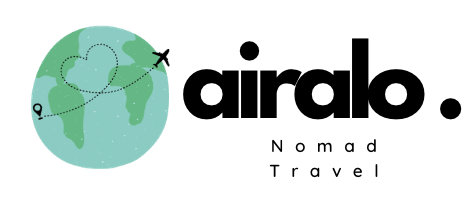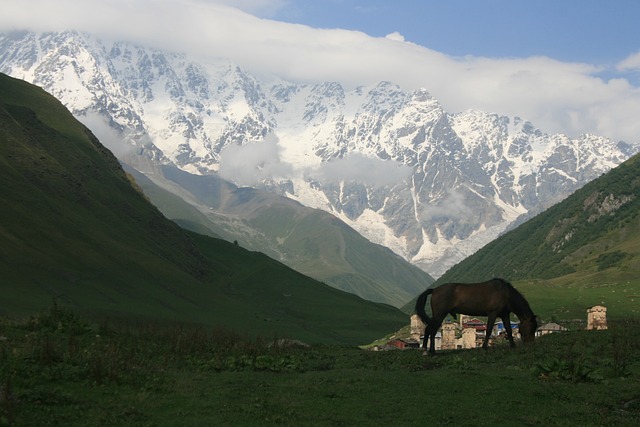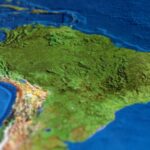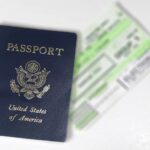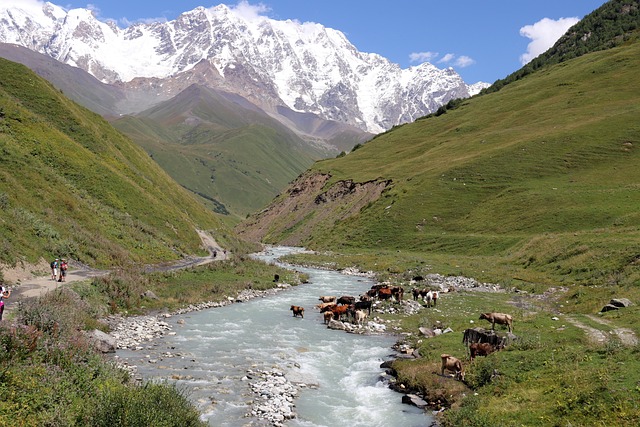
As the number of digital nomads continues to increase, more and more countries have begun to introduce special visa policies to attract remote workers and freelancers to live and work here. As a country located at the junction of Europe and Asia, Georgia has become an ideal choice for digital nomads due to its friendly tax policies, low cost of living, and natural scenery. Georgia’s “Digital Nomad Visa” program (also known as “Remote Work Visa” or “Freelance Visa”) has attracted a large number of international talent since its launch in 2020. This article will detail how to apply for a Georgia digital nomad visa, visa requirements, and applicable living and working environments.
1. Overview of Georgia Digital Nomad Visa
Georgia’s digital nomad visa program is designed for remote workers, freelancers and self-employed individuals, providing an easy and legal path to residence. Through this visa, international applicants can enjoy long-term permission to live and work in Georgia, while enjoying the country’s favorable tax policies and low cost of living.
1. Visa type and validity period
Georgia Digital Nomad Visa isshort stay visa, has the following characteristics:
- Visa validity period: usually1 year, during this period, visa holders can live and work freely in Georgia.
- multiple entries: The visa supports multiple entries and exits from Georgia, so holders can freely arrange their own itinerary without worrying about applying for a new visa each time they enter or exit.
- Renew: After the visa expires, the applicant can apply for renewal, and usually does not need to leave Georgia to complete the renewal process. Renewal conditions are similar to those for the first application, with the main requirements being that you continue to maintain a stable source of income and valid health insurance.
The flexibility of this visa allows digital nomads to live and work in Georgia for an extended period of time based on their personal needs and plans.
2. Work requirements and proof of income
To apply for a Georgia digital nomad visa, remote workers need to provide the following materials:
- No employer or client contact required: Georgia’s digital nomad visa does not require applicants to have a working relationship with a local employer or client. Applicants can work for foreign companies, individual clients or run their own online business.
- Proof of income requirements: Applicants need to provideProof of stable income, generally requiring monthly income not less than$2000. This income standard ensures that applicants can maintain a basic standard of living in Georgia. Common income proof materials include:
- Bank deposit certificate: Display the applicant’s account balance or monthly income flow.
- remote work contract: A contract signed by a foreign company or customer that clearly states the source of income.
- Freelancer invoice or statement: If the applicant is a freelancer, you can provide work invoices or business income statements from the past few months.
3. Health Insurance Requirements
- compulsory health insurance: Applicants must provide valid health insurance covering Georgia. The Georgian government requires all digital nomads to hold compliant medical insurance to cover basic medical needs during their stay.
4. Visa application process
The process of applying for a Georgia digital nomad visa is very simple, here are the basic steps:
- Apply online: Applicants can submit their applications through the official website of the Georgian Immigration Service or through the designated email address. The entire application process isApply onlineof.
- Submit required materials: Need to submit when applyingPassport scan、Proof of income、health insurance policy、Proof of accommodationand other materials. All materials must be uploaded in electronic format.
- Review and Approval: The Georgian Immigration Service will review the application materials and usually requires2 to 4 weekstime to process. After passing the review, the applicant will receive a visa approval notification.
- Entry and residence: After the visa is approved, the applicant can enter Georgia according to the approved visa conditions. After entering the country, applicants can start their remote working and living life.
5. Tax and other legal requirements
- tax residence: Although Georgia’s tax policy is very relaxed, it is important to note that if you live in Georgia for more than183 days, they will be regarded as tax residents and need to abide by local tax regulations and paypersonal income tax. Applicants should therefore ensure that they remain tax compliant.
- Not subject to local employment regulations: Digital nomad visa holders do not need to comply with local employment laws in Georgia. As long as their source of income does not depend on local Georgian companies, they do not need to worry about restrictions involving local labor laws.
6. Visa advantages
The Georgia Digital Nomad Visa has several advantages that make it a popular choice for remote workers:
- low cost of living: The cost of living in Georgia is relatively low, especially when it comes to food, accommodation, and transportation. Digital nomads can enjoy a high quality of life at a lower cost.
- Loose tax policy: Georgia’s tax policy for remote workers is relatively relaxed, with low and simple tax rates, helping digital nomads manage their personal finances more efficiently.
- nature and culture: Rich in natural beauty, history and culture, Georgia is an ideal place to work remotely while enjoying life.
- Good internet connection: Georgia’s big cities like Tbilisi and Batumi offer stable internet connections, suitable for all kinds of remote work.
2. Application conditions for digital nomad visa
Applying for a Georgia digital nomad visa requires meeting a series of specific conditions to ensure that the applicant can live and work legally and stably in Georgia. The following are detailed application requirements:
1. Remote Worker Identity
Applicants must prove that they are a remote worker or self-employed, i.e. able to work in a country other than Georgia. The specific requirements are as follows:
- remote worker: Applicants must provide services to foreign companies or customers, and their work depends entirely on the Internet. They do not need to work in a local Georgian company. Whether you are working full-time, part-time or on a project basis, as long as you work remotely, you are eligible.
- Self-employed or freelancer: If the applicant is a freelancer, runs his or her own online business or provides services as an independent contractor, he or she can also apply for this visa. For example, freelance writers, software developers, designers, consultants, etc. may qualify.
- Overseas company employees: If the applicant works full-time for an overseas company and is not subject to Georgia’s local labor laws, he or she can apply for this visa as a remote worker.
- Run an online business: If the applicant runs an online business (such as e-commerce, website management or other Internet businesses), he or she will also meet the application conditions as long as he can prove that his source of income and the nature of his work are remote work.
2. Proof of income
Proof of income is one of the core application requirements for the Georgia digital nomad visa. Applicants need to provide specific documents to prove that they have sufficient financial ability to maintain life in Georgia:
- Monthly income requirements: Applicants are usually required to have a monthly income of at least$2000, this standard is designed to ensure that digital nomads can live independently in Georgia and are not dependent on local employment opportunities or public benefits.
- Acceptable documentation of income: The following documents can be used as proof of income:
- Bank deposit certificate: Proof of deposit or account balance provided by the bank, showing that the applicant has sufficient funds to maintain his or her life in Georgia.
- remote work contract: A formal contract provided by an overseas company or client, clarifying the applicant’s position and income arrangements.
- Payment voucher or invoice: If the applicant is a freelancer, you can submit proof of income in the past few months, such as invoices paid by clients or income statements.
- tax records: Tax records from some countries can also be used as supplementary proof of income, especially for applicants who have been engaged in freelance work for a long time, to demonstrate the stability of their income.
3. Health insurance
Georgia requires all digital nomads to haveValid health insurance, to protect the applicant’s medical needs while in Georgia. Specific requirements include:
- Medical coverage: Health insurance must coverMedical services in Georgia, including emergency medical care, hospitalizations, clinic visits, and more.
- Insurance validity period: Applicants need to provide an insurance policy when applying for a visa to ensure that they are covered during the validity period of the visa. Generally speaking, the insurance policy should be in force at the time of application and cover the visa holder’s entire period of residence in Georgia.
- insurance provider: Insurance can be provided by international insurance companies or local Georgian insurance companies. Regardless of which option is chosen, applicants will need to provide insurance policy details and supporting documentation.
4. Valid passport
Applicants must hold a valid passport. The specific requirements are as follows:
- Passport validity: The applicant’s passport must be valid for at least6 months, that is, from the date of visa application, the validity period of the passport must at least cover the entire visa application process and the initial period of stay after the visa is approved.
- Passport copy: Applicants need to submit a scan or copy of their passport to ensure that all personal information pages are clearly visible.
5. Other supplementary materials
Depending on the specific circumstances, applicants may also need to submit the following supplementary materials:
- Proof of residence: If the applicant has already found accommodation in Georgia, an accommodation contract or rental agreement is necessary as proof of residence.
- background check: In some cases, the Georgian Immigration Service may require a criminal record certificate or a health examination report, especially if the applicant intends to reside long-term.
3. Application process
The process of applying for a Georgia digital nomad visa is simple and efficient, and is primarily done online. The following are the detailed application steps and specific operational procedures required:
1. Apply online
- Application platform: Applicants need to visit the official website of the Georgian Immigration Service or submit their visa application through the designated official email address. This process is completelyDo it online, eliminating the need to travel to an embassy or consulate, greatly facilitating digital nomads around the world.
- Register an account: On the Georgia Immigration Service website, applicants may first create a personal account, enter basic personal information, and complete identity verification. After creating an account, applicants can log into the system and start filling out the visa application form.
- Fill out the application form: The application form requires filling in some basic information, including personal identity information, work situation, source of income, living arrangements, etc. After completing the form, the applicant needs to upload the required materials (such as passport scan, income certificate, etc.).
- Electronic visa payment: In some cases, applicants may be required to payVisa application fee. Payment of fees is usually viaonline payment systemOnce completed, the visa application fee can be paid using a credit card or other electronic payment method.
2. Submit required materials
Submitting materials is the most important step in the application process. Applicants must ensure that the materials are accurate and complete. The following are the key materials that need to be submitted:
- Passport scan: Applicants must upload a scan of the first page of their passport, showing personal information and passport validity. The passport should be valid for at least 6 months.
- Proof of income: Applicants need to provide documentation proving their source of income to ensure they can maintain their standard of living in Georgia. Common income proof materials include:
- Bank deposit certificate, display account balance or monthly income flow;
- remote work contract, a work contract from an overseas company or client detailing income;
- tax recordsorbill, suitable for freelancers to demonstrate income stability.
- health insurance policy: Applicants must provide valid proof of health insurance, proving that they have purchased medical insurance covering Georgia. The insurance policy should be valid at the time of application and cover the entire visa period.
- Accommodation information: If the applicant has already arranged accommodation in Georgia, this can be providedaccommodation contractorrental agreementAs proof of accommodation. If accommodation arrangements have not yet been determined, you can also indicate your planned accommodation on your application.
- Other supplementary materials: Depending on the specific circumstances of the applicant, the Georgian Immigration Service may require additional materials, such as certificates of no criminal record, health examination reports or bank statements, etc.
3. Waiting for review
- Review cycle: The Georgian Immigration Service will review all materials submitted by applicants.Review. The review process usually requires2 to 4 weeksThe specific time depends on the volume of applications and the complexity of individual applications. Applicants can check the review status through the application platform. If there are requirements for supplementary materials, the Immigration Bureau will notify the applicant to make supplements.
- Audit standards: During the review process, the Immigration Bureau will verify the information and materials submitted by the applicant to ensure that the applicant meets the visa requirements. The review mainly focuses on important information such as whether the applicant’s source of income is stable, whether the health insurance meets the requirements, and whether the passport is valid.
- Supplementary material: If there are incomplete or questionable parts of the application materials, the Immigration Bureau may require the applicant to provide additional supporting materials. Applicants should respond promptly to avoid delays in the application process.
4. Visa approved
- Approval notification: Once the Georgia Immigration Service approves the application, the applicant will receive aElectronic visa approval notice, usually sent via email or the messaging system of the application platform. The notification will include details of visa approval, visa number, validity period, and entry-related precautions.
- Visa approval method: If the applicant applies for an electronic visa, he or she will usually receive an electronic visa document (PDF format) directly, which can be used to enter Georgia. If applying through other channels, the Immigration Bureau may require the applicant to collect the visa at a designated window.
5. Entering Georgia
- Entry preparation: After obtaining visa approval, applicants can plan their trip to Georgia based on the validity period and entry requirements of the visa. Usually, the visa will indicate the validity period for the first entry.
- Immigration procedures: With the digital nomad visa obtained, applicants can directlyEntering Georgia. Upon entry, customs officials will check passports, visas and related documents to ensure that applicants meet entry requirements. Applicants may be required to provide a return ticket or proof of sufficient funds to ensure they are not staying in Georgia illegally.
- Start working remotely: After successful entry, applicants can officially start working remotely in Georgia while enjoying various services and benefits provided by the country. Visa holders are free to live and work in Georgia and enjoy living conditions similar to those of local residents.
4. Visa validity and renewal
The Georgia Digital Nomad Visa provides flexible living arrangements for remote workers, allowing visa holders to live and work legally in Georgia. The visa is valid forone year, and before the visa expires, the applicant can submit an application for renewal, usually without leaving Georgia. Below are detailed instructions regarding visa validity and renewal:
1. Visa validity period
- initial validity period: The initial validity period of the Georgian Digital Nomad Visa is12 months. This means that visa holders can legally live and work in Georgia for up to one year after visa approval without leaving the country during that period. The starting time of visa validity is usually calculated from the date of approval or entry date, and the specific date will be marked on the visa approval notice.
- multiple entries:Georgia Digital Nomad Visa ismultiple entry visa, which means that within the validity period of the visa, the holder can enter and exit Georgia multiple times and arrange international travel flexibly. Every time you enter the country, you can enter smoothly as long as you meet the local entry requirements.
2. Renewal requirements
- Apply for renewal in advance:Georgian digital nomad visa holders canSubmit renewal application. It is recommended that you at least30 daysSubmit a renewal application to avoid irregularity of residence due to delays in application processing.
- Renewal materials: When renewing, applicants need to submit some materials similar to those for the initial application. These materials typically include:
- Proof of income: Applicants need to continue to provide documents proving that they have a stable income. It is usually required to show that the applicant’s monthly income should be at least$2000. This can be submitted in the form of bank statements, tax records, or contract renewals.
- health insurance: Applicants will need to continue to demonstrate that they have valid health insurance to ensure coverage for their medical needs while in Georgia. When renewing, health insurance should be valid for all periods of the new visa.
- Proof of accommodation: If your living arrangements in Georgia have changed, you need to provide updated proof of accommodation, such as a rental contract, accommodation reservation, or landlord’s statement.
- No need to leave the country: In most cases, applicants do not need to leave Georgia to complete their renewal application. This means that applicants can stay in Georgia for the duration of their visa validity while awaiting approval for renewal. Only in exceptional circumstances may the Immigration Bureau require the applicant to leave the country during the application period.
3. Approval process for renewal
- Approval cycle: The review and approval cycle for a renewal is usually similar to that for an initial visa application, usually2 to 4 weeks. The specific time depends on the completeness of the application materials and the workload of the immigration office. If the materials are complete and there are no problems, the approval cycle may be shorter.
- Approval results: If the application is approved, the applicant will receive an approval notification for the new visa, usually in electronic form. The renewed visa is valid for 1 year and you can continue to enjoy the convenience of working in Georgia. If the renewal application is rejected, the Immigration Bureau will provide the reasons for the rejection and allow the applicant to appeal within a certain period.
4. Possibility of long-term stay
- Long-term residence options: Although the digital nomad visa itself is valid for 1 year, some digital nomads who intend to settle in Georgia for the long term may be eligible to apply after multiple renewalslong term residence permit(such as a work visa or residence permit). A long-term residence permit allows applicants to live and work more stably in Georgia.
- Other residency options: The Georgian government also provides foreign citizens with a variety of long-term residence options, such as investment residence, family reunification residence, etc. Digital nomads may consider applying for these types of residence if they wish to stay in Georgia long-term and meet the requirements.
5. Processing after visa expiration
- Stay after visa expiry: If the applicant does not apply for renewal in time or is not approved after the visa expires, the applicant may face the risk of illegal stay. Therefore, it is important to process your visa renewal in advance and complete all necessary application procedures before your visa expires.
- Consequences of overstaying your stay: Staying in Georgia beyond the validity of your visa may result in fines, entry ban, or requirement to leave the country. If this happens, it is recommended to contact the Immigration Bureau as soon as possible to avoid unnecessary legal problems.
5. Living and working environment in Georgia
An increasingly popular destination for digital nomads, Georgia offers a great work and living environment suitable for remote workers to live and work long-term. Here are specific details about the living and working environment in Georgia:
1. Low cost of living
- Accommodation cost: The cost of accommodation in Georgia is relatively low. Whether it is long-term rental apartments or short-term Airbnb, you can find accommodation that meets your needs at a more economical price. In the capital Tbilisi and the coastal city of Batumi, the monthly rent for a one-bedroom apartment is approximatelyUSD 300-500between, while in smaller cities and rural areas, rents are likely to be lower. Many digital nomads also choose to share their accommodation with others, further reducing accommodation costs.
- Food & Catering: In Georgia, the prices of food in daily life are also very affordable. Fresh vegetables, fruits, meat and dairy products are relatively cheap in local markets and supermarkets. It’s also cheaper to eat out, especially at local restaurants. The price of a regular meal in a regular restaurant is approx.USD 10-15, while quick-service or street food is more affordable, often costing just a few dollars.
- transportation cost: Transportation costs in Georgia are relatively low. The public transportation system within the city (such as buses, subways, taxis, etc.) is very convenient and reasonably priced. The one-way fare is usually0.5-1 USD. If you choose shared travel, the cost is relatively affordable. For those traveling by car, gas prices are also cheaper than in Western countries, further reducing travel costs.
2. Fast Internet connection
- Broad network coverage: Most cities in Georgia, especially the capital Tbilisi and Batumi, offer fast and stable internet connections. Depending on the area, the network speed can reach100 MbpsEven higher, enough to meet the daily needs of remote workers, including video conferencing, file upload/download, and multi-tasking operations.
- Public Wi-Fi: Many cafes, restaurants and workspaces offer free Wi-Fi, making them ideal places for digital nomads to work remotely. Especially in cities like Tbilisi and Batumi, digital nomads can easily find a suitable place to work, enjoy high-speed Internet and a comfortable working environment.
- office space: Coworking spaces in Georgia have grown rapidly in recent years, especially in the capital and major cities, providing a diverse range of office options. These spaces are typically equipped with high-quality network facilities, comfortable desks, and a variety of amenities designed to make remote workers more productive.
3. Friendly community and network
- Active foreign community: As Georgia becomes a popular destination for digital nomads, more foreigners are settling and working here. Especially in Tbilisi and Batumi, the expat community is very active and there is an increasing number of interactions between digital nomads. There are multiple local social media groups, Facebook communities and offline event organizations to help foreigners find like-minded friends and share work and life experiences.
- Social events and parties: In order to help new immigrants adapt to local life, Georgia regularly holds various social activities, online gatherings, professional salons and other activities. Whether it’s a small dinner party, an entrepreneurial seminar, or more formal industry summits and lectures, there are many opportunities to expand your social circle and make valuable professional connections. For remote workers, this kind of social support is extremely important, not only to enrich their social lives but also to advance their careers.
- Entrepreneurship and Career Development: Georgia’s tax policy and relatively relaxed business environment have also attracted a large number of entrepreneurs and freelancers. Georgia not only offers a low-cost living environment for digital nomads, but also offers a wealth of opportunities for those interested in starting their own projects or companies. The local government supports foreigners starting their own businesses, offering a range of tax incentives and simple registration procedures.
4. Beautiful natural environment
- diverse natural landscapes: Georgia is home to stunning natural beauty, including majestic mountains, vast forests, stunning beaches and rich historical sites. Whether you are a digital nomad who loves mountain climbing, skiing, or a leisurely vacation, you can find activities that suit you. in particularcaucasus mountains, a paradise for hiking and skiing enthusiasts, whileBatumi on the Black Sea Coast, attracts many tourists with its warm climate and beautiful beaches.
- Nature and work balance: Remote workers can use their weekends or free time to explore Georgia’s natural wonders, such asvalley of medea、Uplischich ancient cityand other historical and cultural attractions, and enjoy the natural tranquility away from the hustle and bustle of the city. This lifestyle allows digital nomads to enjoy physical and mental relaxation after busy work, enhancing the overall happiness of life.
- healthy lifestyle: Georgia’s natural environment also provides digital nomads with many opportunities for health-promoting activities, such as hiking, yoga, cycling, etc. The country’s clean air and abundant greenery provide an ideal environment for remote workers looking for a healthier lifestyle.
5. Living and working environment in Georgia
Not only is Georgia popular among digital nomads because of its low cost of living, it’s also an ideal remote work destination because of its friendly communities, stable internet, and rich natural landscape. Here is a more detailed description of the living and working environment in Georgia:
1. Low cost of living
- stay: Accommodation prices in Georgia are very affordable compared to regions such as Western Europe and North America. In big cities like Tbilisi and Batumi, the monthly rent for a 1-bedroom apartment is roughly$300 to $600, while in smaller cities and rural areas, prices may be even lower. In particular, shared apartments are more economical and suitable for digital nomads who want to save money. Many digital nomads also choose to find long-term accommodation on Airbnb and enjoy lower prices than hotels while experiencing the lifestyle of local residents.
- Food & Catering: Food prices in Georgia are affordable, especially when buying fresh ingredients such as vegetables, fruits, and meat in local markets. The prices are very competitive. Food prices in ordinary supermarkets are also cheaper than in Western countries, and basic daily expenses are usually$200 to $300can maintain daily life. Eating out is very affordable, with a standard meal usually costing between$8 to $15Among them, authentic Georgian delicacies such as khachapuri (cheese pie) and shach (grilled meat) can be enjoyed at relatively low prices, especially in local restaurants.
- transportation cost: Public transportation in Georgia is also very affordable. One-way bus and subway fares within the city usually cost0.5 to 1 USD. Taxis are also relatively affordable and can often be hailed easily through local taxi apps such as Yandex Taxi. Long-distance bus or train fares are also reasonably priced, making them ideal for exploring more of Georgia’s cities and natural attractions. If you choose to rent a car and travel by car, gas prices are also relatively cheap, 20-30% lower than in Western countries.
2. Fast Internet connection
- Network speed and stability: Georgia’s Internet infrastructure is relatively complete, with most cities providing stable and high-speed Internet connections. Especially in the capital Tbilisi, many cafes, restaurants and public spaces have high-speed Wi-Fi, and network speeds can often reach100-200Mbps, to meet the work needs of remote workers. Even in some remote areas, many small hotels and B&Bs provide stable wireless networks, ensuring that digital nomads can work easily anywhere.
- office space: As the number of digital nomads increases, coworking spaces are growing in cities like Tbilisi and Batumi. These spaces offer not only high-speed internet connections, but comfortable desks, conference rooms, and other office amenities, often priced between$100 to $300/month, vary based on location and facilities. Many workspaces also feature areas for social events, encouraging collaboration and communication among members and helping to build professional networks.
- Public Wi-Fi and Convenience: You can connect to Wi-Fi for free in many parks, shopping malls and street squares in Tbilisi. This enables digital nomads to work from anywhere and enjoy a flexible work environment. Moreover, Georgia’s Wi-Fi coverage is also extremely convenient. Even in more remote towns, many cafes and shops will provide high-speed Internet connections.
3. Friendly community and network
- Active expat community: As Georgia becomes a destination of choice for an increasing number of digital nomads, cities like Tbilisi and Batumi have growing expat communities. Many digital nomads join local foreign groups and participate in various activities through social media platforms (such as Facebook) or specialized community organizations. These social events not only help digital nomads meet like-minded people, but also provide opportunities for workplace collaboration and the exchange of inspiration.
- Diverse social events and gatherings: In order to promote the integration of the local expat community, Georgia regularly organizes various social events and professional gatherings. For example, digital nomads can participate in “Coffee Time” social events, which allow everyone to exchange experiences and share ideas about entrepreneurship or work in a relaxed atmosphere. In addition, there are many language exchange, fitness, cultural exchange and other activities for digital nomads to help them better integrate into local life.
- Entrepreneurship opportunities: Georgia has a friendly attitude toward foreign entrepreneurs, simplifying registration procedures and providing tax incentives. Digital nomads looking to expand their business can enjoy a favorable business environment in Georgia. Many digital nomads choose to register their own companies in Georgia, enjoying low tax rates and flexible business policies, further promoting the local entrepreneurial atmosphere.
4. Beautiful natural environment
- diverse natural landscapes:Georgia is a country rich in natural resources, with e.g.caucasus mountains、black sea coastand other magnificent natural landscapes. After their busy work, remote workers can use weekends or holidays to go to these natural resorts and enjoy outdoor activities such as mountaineering, skiing, and hiking. Georgia’s natural landscape and diverse climatic conditions allow everyone to find activities suitable for them and enjoy the tranquility and beauty of nature.
- Travel and Leisure Activities: Whether you’re a digital nomad looking for adventure or someone looking to relax and unwind, Georgia offers a wealth of activity options. For example,TbilisisurroundingNarzikiThe hot spring area not only has mineral water with a long history, but also various types of fitness, yoga and other healthy leisure activities. And inBatumi, the coastal beaches and abundant water activities make people forget to leave, making it an ideal place for remote workers to relax.
- health and relaxation: In Georgia, remote workers can not only enjoy diverse natural landscapes, but also maintain physical and mental health through yoga, meditation, hiking, and more. Many hotels and resorts also provide health resort services, such as spa treatments, massages, etc., which can help reduce work stress and rejuvenate the body and mind.
in conclusion
Georgia’s digital nomad visa offers remote workers an attractive opportunity to live and work. With its low cost of living, relaxed tax policy, convenient visa application process and beautiful natural environment, Georgia has become an ideal destination for digital nomads. Through a simple online application process, applicants only need to provide necessary proof of income, health insurance, valid passport and other materials to obtain permission to live and work, and enjoy a long-term and flexible living experience in Georgia.
However, applicants need to be aware of tax residency regulations and health insurance requirements. Understanding and adhering to these conditions will help ensure you can successfully obtain your visa and live and work safely in Georgia. Overall, Georgia provides an ideal work-life platform for digital nomads and is ideal for remote workers looking for new opportunities and a higher quality of life.
